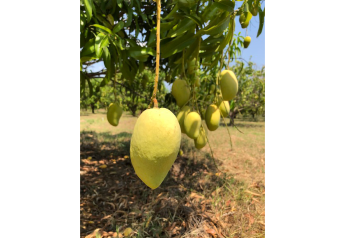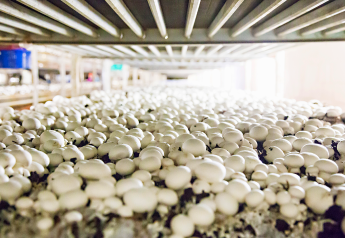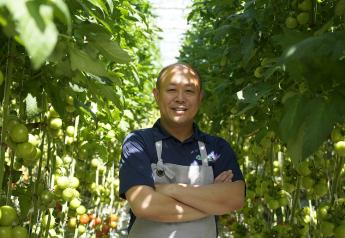How to change the face of agriculture
How to change the face of agriculture
It’s no wonder Michael Smith wasn’t comfortable with pursuing a career in agriculture when he started college at Lincoln University in Jefferson City, Mo.
He wasn’t aware of all opportunities in this broad field, and, as a young African American man growing up in Chicago, it wasn’t something anyone he knew was doing.
But while in college, Smith discovered the local chapter of Minorities in Agriculture, Natural Resources, and Related Sciences (MANRRS), and learned that he could make an impact and pursue a meaningful career in food and agricultural sciences. Now, Smith is a senior, an agriculture major and president of the school’s MANRRS chapter.
“Agriculture was a major I wasn’t real comfortable with, but when I joined MANRRS, it was like family. And it wasn’t just one ethnicity. It was black, it was white, it was a good mixing pot,” Smith said. “I appreciated that because it had the feeling of inclusion. MANRRS offers that, but people have to be open to being included.”
This is the kind of broader awareness and change advocates for minorities in agriculture are seeking.
With those goals in mind, Aug. 22-28 has been declared Minorities in Agriculture, Natural Resources, and Related Sciences (MANRRS) Week by Kansas Gov. Laura Kelly and by Missouri Gov. Mike Parson. The proclamations, which coincide with the KC Animal Health Corridor’s Digital Animal Health Summit beginning Aug. 24, are to help change perceptions of agricultural careers and encourage greater inclusion of minority-represented populations to build a more prosperous, creative and innovative industry.
It’s needed: The ratio of professionals in the agriculture industry is not representative of the American population.
Of the 3.4 million farmers nationwide, about 7% are minorities — including Hispanic, American Indian, African American and Asian. That ratio that has remained relatively flat in recent years, according to a 2019 Western Growers Association article.
Almost 62% of the U.S. population identify as white alone, so that means 38% of the population identifies as another race or ethnicity, either alone or in combination with white or other groups, according to the 2020 U.S. Census.
To recruit more minorities in agriculture sciences and related food industries, the young people need to be aware of these fields and what they involve, before college and during college, according to a 1997 Journal of Agricultural Education article by Zelia Wiley, assistant dean and director of diversity programs at the College of Agriculture at Kansas State University.
Minority populations need exposure to these fields of study, and then, once they gain that knowledge, their perceptions and attitudes can shift, which ultimately leads to behavior change.
“Our goal is to change the face of agriculture. We know we can do it, one day at a time,” Wiley said. “Most ethnic groups that are underserved, most have a negative view of agriculture.”
For instance, many African Americans think of slavery when they think of agriculture, so changing that perception requires a lot of outreach and education.
Today, Wiley has been a member of MANRRS for more than 30 years, is the Kansas State University MANRRS chapter advisor and president of the national society of MANRRS. In 2003, she was the first black woman hired with a doctorate degree in agriculture and extension education at Kansas State’s agriculture college.
Of course, there’s the FFA and the 4H, where all people are invited to join, “but all students don’t feel included or embraced. It’s all about having an informed choice,” she said.
Everybody is part of an ethnic group, Wiley said.
“I’m doing this for everyone. We want to get more individuals knowledgeable. The only way we can work together, is that we all have to be informed of each other. Diversity and inclusion are the way,” Wiley said.
The MANRRS chapters hold outreach events, fundraisers, take students on farm tours and hold trainings in professional etiquette, such as in interviews, Zoom calls and on social media. The organization also connects students with large agriculture companies, serving as an empowering networking resource.
To succeed at retaining young professionals in agriculture, employers need to make people like Smith feel like part of the team, offer chances for them to have a voice, and provide motivation for what they’re doing, he said.
Many students — especially those who are the first generation in their family to go to university — don’t know what to do when they get there, Smith said.
“MANRRS helped me find where I needed to go and helped put me in the direction that, even though it was scary and it was unknown, I was willing to take a chance,” he said. “How are we ever going to integrate, how are we ever going to be one, if we don’t try?”







